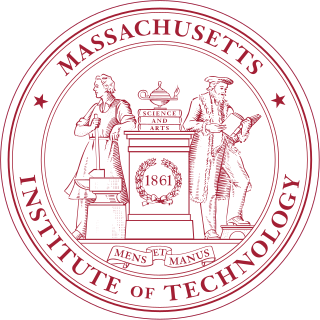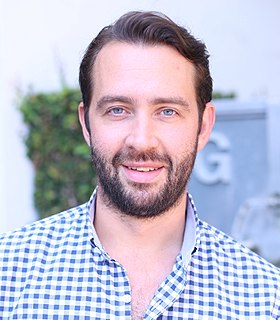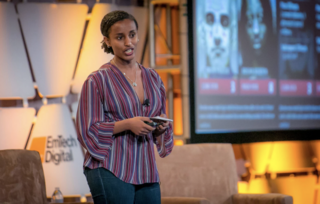Related Research Articles

The Massachusetts Institute of Technology (MIT) is a private land-grant research university in Cambridge, Massachusetts. Established in 1861, MIT has since played a key role in the development of modern technology and science, ranking it among the top academic institutions in the world.

The University of Tehran is the oldest modern university located in Tehran, Iran. Based on its historical, socio-cultural, and political pedigree, as well as its research and teaching profile, UT has been nicknamed "The Mother University of Iran". In international rankings, UT has been ranked as one of the best universities in the Middle East and is among the top universities of the world. It is also the premier knowledge producing institute among all OIC countries. The university offers more than 111 bachelor's degree programs, 177 master's degree programs, and 156 PhD. programs. Many of the departments were absorbed into the University of Tehran from the Dar al-Funun established in 1851 and the Tehran School of Political Sciences established in 1899.

Internet access is the ability of individuals and organizations to connect to the Internet using computer terminals, computers, and other devices; and to access services such as email and the World Wide Web. Internet access is sold by Internet service providers (ISPs) delivering connectivity at a wide range of data transfer rates via various networking technologies. Many organizations, including a growing number of municipal entities, also provide cost-free wireless access and landlines.

RMIT University, officially the Royal Melbourne Institute of Technology (RMIT), is a public research university in Melbourne, Australia.

The global digital divide describes global disparities, primarily between developed and developing countries, in regards to access to computing and information resources such as the Internet and the opportunities derived from such access. As with a smaller unit of analysis, this gap describes an inequality that exists, referencing a global scale.

MIT Technology Review is a bimonthly magazine wholly owned by the Massachusetts Institute of Technology, and editorially independent of the university. It was founded in 1899 as The Technology Review, and was re-launched without "The" in its name on April 23, 1998 under then publisher R. Bruce Journey. In September 2005, it was changed, under its then editor-in-chief and publisher, Jason Pontin, to a form resembling the historical magazine.
The Aspen Institute is an international nonprofit organization founded in 1949 as the Aspen Institute for Humanistic Studies. The Institute's stated aim is the realization of "a free, just, and equitable society" through seminars, policy programs, conferences, and leadership development initiatives. The institute is headquartered in Washington, D.C., United States, and has campuses in Aspen, Colorado, and near the shores of the Chesapeake Bay at the Wye River in Maryland. It has partner Aspen Institutes in Berlin, Rome, Madrid, Paris, Lyon, Tokyo, New Delhi, Prague, Bucharest, Mexico City, and Kyiv, as well as leadership initiatives in the United States and on the African continent, India, and Central America.

Simson L. Garfinkel is the US Census Bureau's Senior Computer Scientist for Confidentiality and Data Access. Previously, he was a computer scientist at the National Institute of Standards and Technology (2015-2017) and, prior to that, an associate professor at the Naval Postgraduate School in Monterey, California (2006-2015). In addition to his research, Garfinkel is a journalist, an entrepreneur, and an inventor; his work is generally concerned with computer security, privacy, and information technology.

The Eli and Edythe L. Broad Institute of MIT and Harvard, often referred to as the Broad Institute, is a biomedical and genomic research center located in Cambridge, Massachusetts, United States. The institute is independently governed and supported as a 501(c)(3) nonprofit research organization under the name Broad Institute Inc., and it partners with the Massachusetts Institute of Technology, Harvard University, and the five Harvard teaching hospitals.
Andrew J. Hoffman is a scholar of environmental issues and sustainable enterprise. He is the Holcim (US) Professor of Sustainable Enterprise at the University of Michigan's Ross School of Business and School for Environment and Sustainability (SEAS). His research uses a sociological perspective to understand the cultural and institutional aspects of environmental issues for organizations. In particular, he focuses on the processes by which environmental issues both emerge and evolve as social, political and managerial issues. He has written extensively about: the evolving nature of field level pressures related to environmental issues; the corporate responses that have emerged as a result of those pressures, particularly around the issue of climate change; the interconnected networks among non-governmental organizations and corporations and how those networks influence change processes within cultural and institutional systems; the social and psychological barriers to these change processes; and the underlying cultural values that are engaged when these barriers are overcome. His Ph.D. was conferred by the Massachusetts Institute of Technology in 1995. He is an expert in environmental pollution and has published eighteen books and over one-hundred articles and book chapters.

The Hubert H. Humphrey School of Public Affairs at the University of Minnesota is one of the United States' top-ranked professional public policy and planning schools. The school is noted for equipping students to play key roles in public life at the local, state, national, and global level and offers six distinctive master's degrees, a doctoral degree, and six certificate programs.

The Alfred P. Sloan Foundation is an American philanthropic nonprofit organization. It was established in 1934 by Alfred P. Sloan Jr., then-president and chief executive officer of General Motors.
Thomas A. Kochan is a professor of industrial relations, work and employment. He is the George Maverick Bunker Professor of Management at the MIT Sloan School of Management, where he has been a faculty member since 1980.

Alondra Nelson is an American policymaker, writer, and academic. She is the Harold F. Linder Chair and Professor in the School of Social Science at the Institute for Advanced Study, an independent research center in Princeton, New Jersey. She currently serves as acting director of the White House Office of Science and Technology Policy (OSTP) and Deputy Assistant to the President. From 2017-2021, she was president of the Social Science Research Council, an international research nonprofit organization. She was previously professor of sociology at Columbia University in the City of New York, where she served as the inaugural Dean of Social Science, as well as director of the Institute for Research on Women and Gender. She began her career on the faculty of Yale University.
Jay S. Golden is an internationally known Sustainability academic and researcher. Golden is the Pontarelli Professor of Environmental Sustainability & Finance at Syracuse University where he also directs the Dynamic Sustainability research lab.

Dina Katabi is the Andrew and Erna Viterbi Professor of Electrical Engineering and Computer Science at MIT and the director of the MIT Wireless Center.
Diana Jue-Rajasingh is an American female activist who is promoting life-improving technologies in South India. She has established the Essmart network in association with Jackie Stenson, whom she met while at MIT, to disseminate technology innovations which are largely unknown in the rural areas of India and China. Through this network of community initiatives she and her friend created distribution channels. In 2015, Forbes named Jue-Rajasingh as "one of Forbes' 30 under 30." In 2016, Jue-Rajasingh entered the Strategy doctoral program at the University of Michigan Ross School of Business.

Christian T. Wentz is an American electrical engineer and entrepreneur. He is recognized for his work in engineering authenticity in electronic devices and the use of these primitives in distributed systems, developing neural interface technologies and innovation in optoelectronics, low power circuit design, wireless power and high bandwidth communication technologies.

Rediet Abebe is an Ethiopian computer scientist working in algorithms and artificial intelligence. She is an Assistant Professor of Computer Science at the University of California, Berkeley. Previously, she was a Junior Fellow at the Harvard Society of Fellows.
References
- ↑ Subbaraman, Nidhi (2010). "Innovator Under 35: Amir Alexander Hasson, 34". MIT Technology Review.
- ↑ First Movers Fellowship Program, Amir Alexander Hasson Archived May 7, 2015, at the Wayback Machine , Aspen Institute. Retrieved 26 October 2012.
- ↑ First Movers Fellowship Program, Amir Alexander Hasson Archived May 7, 2015, at the Wayback Machine , Aspen Institute. Retrieved 26 October 2012.